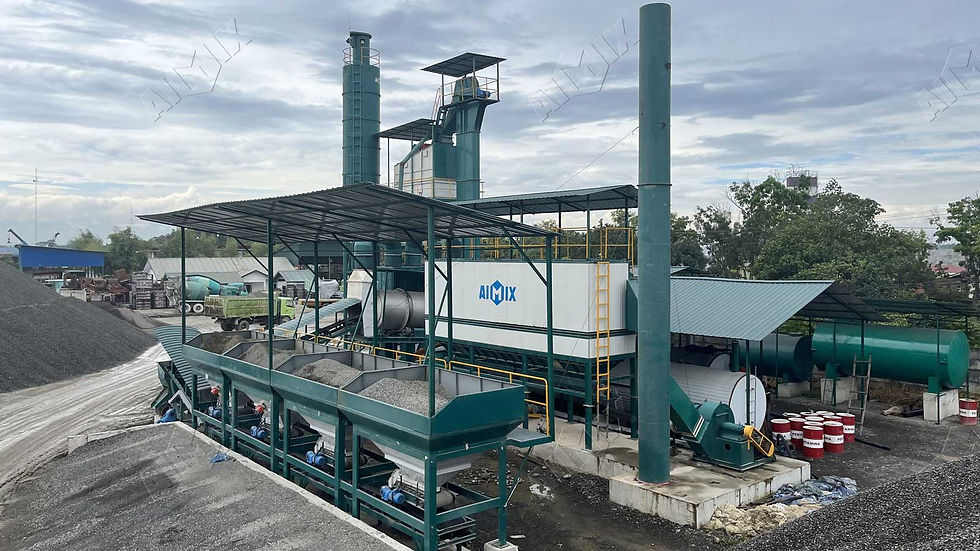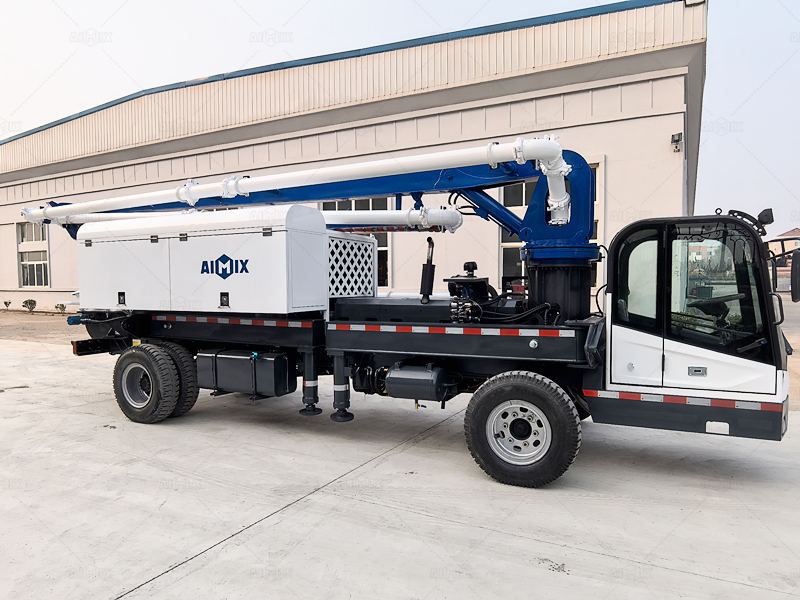Is the ROI for a 100 TPH Asphalt Plant Typically Under 2 Years?
- aimixglobal5
- Sep 1, 2025
- 3 min read
Investing in an asphalt plant is a major decision for contractors and construction companies. One of the first questions that comes to mind is whether a 100 TPH asphalt plant machine can deliver a return on investment (ROI) in under 2 years. This concern is valid, especially for businesses aiming to expand operations or reduce asphalt purchasing costs. In this post, we explore the key factors that influence ROI and why many contractors find quick returns possible with the right planning and utilization.

Understanding the 100 TPH Asphalt Plant
A 100 TPH (tons per hour) hot mix asphalt plant for sale is designed to produce high-quality asphalt efficiently. It typically suits small to medium-scale road construction projects, parking lots, and infrastructure maintenance. The plant’s output of 100 tons per hour allows contractors to handle multiple projects simultaneously or complete larger jobs faster than relying on purchased asphalt from third parties.
Production Capacity and Project Volume
The ROI heavily depends on how much asphalt you produce and sell or use. For example, if your projects demand around 400 tons of asphalt per day, a 100 TPH plant can meet this requirement in just 4–5 hours of operation. Over a month, this translates to substantial savings on purchased asphalt and faster project completion. Therefore, higher utilization rates directly shorten the payback period.
Cost Savings and Asphalt Purchasing
One of the most tangible benefits of owning a 100 TPH plant is cost control. Purchasing asphalt from suppliers often involves fluctuating prices and transportation costs. Producing your own asphalt not only stabilizes costs but also reduces dependency on external vendors. For businesses that frequently handle road construction projects, these savings can quickly add up, making a 2-year ROI highly achievable.

Operational Efficiency and Labor Costs
Another key factor is operational efficiency. Modern 100 TPH asphalt plants come with automated controls, energy-efficient burners, and optimized mixing technology. These features reduce labor needs and minimize material waste. Contractors can operate with fewer staff while maintaining consistent asphalt quality, which further accelerates ROI.
Maintenance and Downtime Considerations
Proper maintenance plays a crucial role in keeping the plant running efficiently. Unexpected breakdowns can delay production and impact project schedules. Investing in reliable machinery with local service support ensures minimal downtime. For instance, having resident engineers or easy access to spare parts in Indonesia or Southeast Asia can significantly reduce operational interruptions, keeping your ROI on track.
Market Demand and Strategic Planning
High local demand for asphalt contributes to a faster ROI. Contractors working in regions with ongoing road expansion or urban development projects will likely find constant utilization for their 100 TPH plant. Strategic project scheduling ensures the plant operates near full capacity, maximizing production output and revenue generation.
Case Example
Consider a contractor handling multiple rural road projects in Indonesia. If each project requires 5,000 tons of asphalt and the plant produces 100 tons per hour, the company can complete these projects in just 50 production hours per site. The savings on purchasing asphalt externally, combined with faster project turnover, make it plausible to recover the initial investment in under 2 years.

Additional Advantages Beyond ROI
Beyond financial returns, owning a 100 TPH asphalt plant improves flexibility and project control. Contractors can adjust asphalt grades on-site, respond quickly to client demands, and maintain higher quality standards. These advantages often lead to more project contracts and long-term business growth. Learn about the overall asphalt plant cost at right!
Conclusion: Achieving ROI with the Right Approach
While ROI depends on several factors—including project volume, operational efficiency, and market demand—many contractors find that a 100 TPH asphalt plant can realistically pay for itself in under 2 years. Careful planning, strategic scheduling, and proper maintenance are key. For businesses aiming to reduce asphalt costs, gain project flexibility, and increase profit margins, this investment proves highly valuable.
At our company, we provide reliable 100 TPH asphalt plants with local support in Indonesia and Southeast Asia. Our machines are designed for high efficiency, minimal downtime, and consistent asphalt quality. Contact us today to discuss how a 100 TPH asphalt plant can accelerate your projects and deliver a strong ROI in under 2 years.




Comments